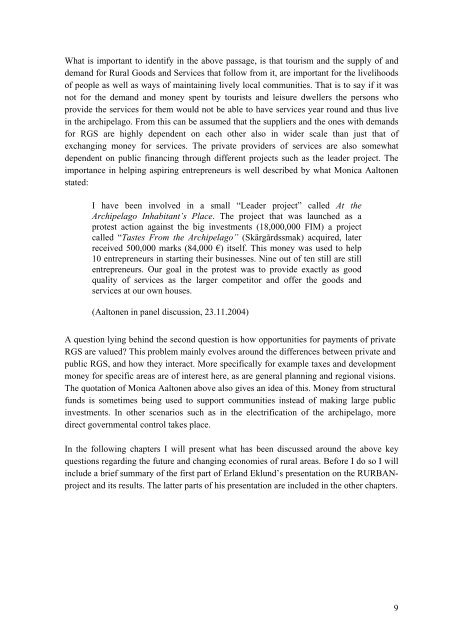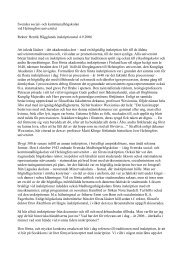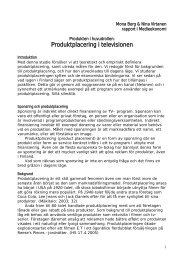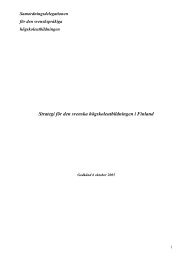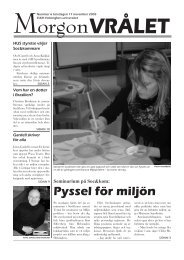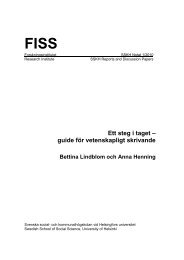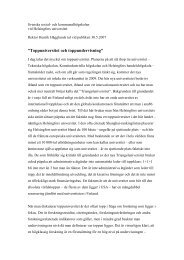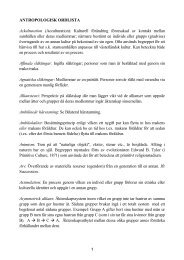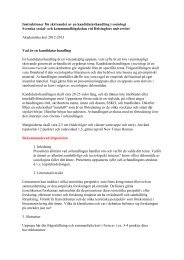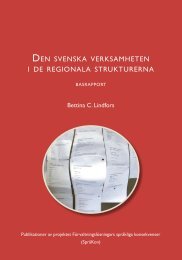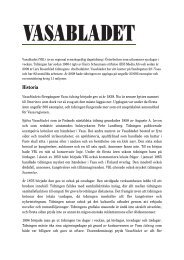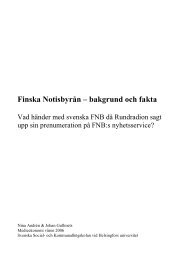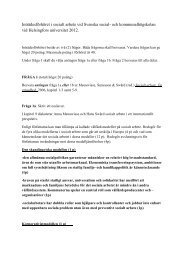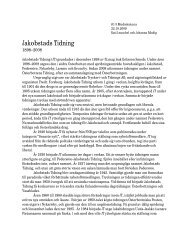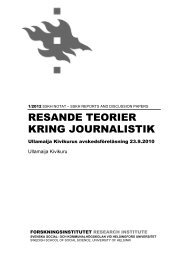FISS - Svenska social - Helsinki.fi
FISS - Svenska social - Helsinki.fi
FISS - Svenska social - Helsinki.fi
Create successful ePaper yourself
Turn your PDF publications into a flip-book with our unique Google optimized e-Paper software.
What is important to identify in the above passage, is that tourism and the supply of and<br />
demand for Rural Goods and Services that follow from it, are important for the livelihoods<br />
of people as well as ways of maintaining lively local communities. That is to say if it was<br />
not for the demand and money spent by tourists and leisure dwellers the persons who<br />
provide the services for them would not be able to have services year round and thus live<br />
in the archipelago. From this can be assumed that the suppliers and the ones with demands<br />
for RGS are highly dependent on each other also in wider scale than just that of<br />
exchanging money for services. The private providers of services are also somewhat<br />
dependent on public <strong>fi</strong>nancing through different projects such as the leader project. The<br />
importance in helping aspiring entrepreneurs is well described by what Monica Aaltonen<br />
stated:<br />
I have been involved in a small “Leader project” called At the<br />
Archipelago Inhabitant’s Place. The project that was launched as a<br />
protest action against the big investments (18,000,000 FIM) a project<br />
called “Tastes From the Archipelago” (Skärgårdssmak) acquired, later<br />
received 500,000 marks (84,000 €) itself. This money was used to help<br />
10 entrepreneurs in starting their businesses. Nine out of ten still are still<br />
entrepreneurs. Our goal in the protest was to provide exactly as good<br />
quality of services as the larger competitor and offer the goods and<br />
services at our own houses.<br />
(Aaltonen in panel discussion, 23.11.2004)<br />
A question lying behind the second question is how opportunities for payments of private<br />
RGS are valued? This problem mainly evolves around the differences between private and<br />
public RGS, and how they interact. More speci<strong>fi</strong>cally for example taxes and development<br />
money for speci<strong>fi</strong>c areas are of interest here, as are general planning and regional visions.<br />
The quotation of Monica Aaltonen above also gives an idea of this. Money from structural<br />
funds is sometimes being used to support communities instead of making large public<br />
investments. In other scenarios such as in the electri<strong>fi</strong>cation of the archipelago, more<br />
direct governmental control takes place.<br />
In the following chapters I will present what has been discussed around the above key<br />
questions regarding the future and changing economies of rural areas. Before I do so I will<br />
include a brief summary of the <strong>fi</strong>rst part of Erland Eklund’s presentation on the RURBANproject<br />
and its results. The latter parts of his presentation are included in the other chapters.<br />
9


